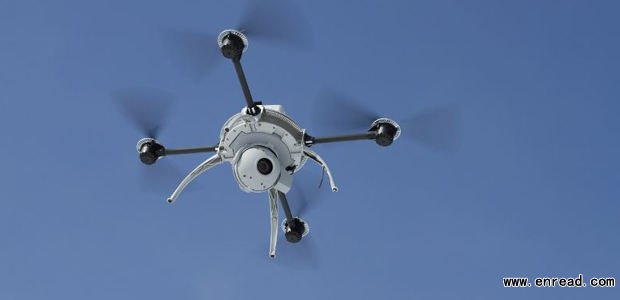| ||||||||||||||||||||||||||||||||||||||||||||||||||||||||||||||||||||||||||||||||
|
德国铁路公司计划于近期在各铁路站点区域试飞配备了红外相机的无人机,用以监控各区内公物在夜间被涂鸦或损毁的情况,并收集相关证据以便对破坏者进行处罚。
 Germany's national railway company, Deutsche Bahn, plans to test small drones to try to reduce the amount of graffiti being sprayed on its property. Germany's national railway company, Deutsche Bahn, plans to test small drones to try to reduce the amount of graffiti(涂鸦) being sprayed on its property.
The idea is to use airborne infra-red cameras to collect evidence, which could then be used to prosecute1 vandals who deface(污损) property at night.
But it is not yet clear how Germany's strict anti-surveillance laws might affect their use.
Graffiti is reported to cost Deutsche Bahn about 7.6m euros ($10m) a year.
German media report that each drone will cost about 60,000 euros and fly almost silently, up to 150m (495ft) above ground.
Using cameras to film people surreptitiously is a sensitive issue in Germany, where privacy is very highly valued.
When Google sent its cameras through the country three years ago to build up its "Street View" of 20 cities, many people objected to their houses appearing online. Even Foreign Minister Guido Westerwelle said: "I will do all I can to prevent it".
Such was the opposition3 that Google was compelled to give people an opt-out. If householders indicated that they did not want their homes shown online, then the fronts of the buildings would be blurred4. More than 200,000 householders said that they did want their homes blanked out on Street View.
A Deutsche Bahn spokesman told the BBC that its drones would be used in big depots where vandals enter at night and spray-paint carriages. The drones would have infra-red sensors5 sophisticated enough for people to be identified, providing key evidence for prosecutions6.
But it seems the cameras would be tightly focused within Deutsche Bahn's own property - people or property outside the depots would not be filmed.
The drone issue is also sensitive in Germany because earlier this month the defense7 ministry8 halted an expensive project to develop Germany's own surveillance drone, called Euro Hawk9.
The huge unmanned aircraft would be used abroad but would need to be able to fly in German airspace, if only to take off and land on their way to and from the land to be watched, our correspondent reports.
But it became clear that the air traffic authorities were not going to grant that permission. The reasoning was that Germany's military drones would be unable to avoid collisions with other, civilian10 aircraft.
Small drones on private land do not need permission from air traffic controllers - big drones do.
So Germany seems to be entering a legal grey area - it is not clear when the flight of a drone may become so extensive that the wider authorities need to intervene, Stephen Evans reports.
点击  收听单词发音 收听单词发音
|
||||||||||||||||||||||||||||||||||||||||||||||||||||||||||||||||||||||||||||||||
上一篇:波士顿爆炸案疑犯已可下地行走 下一篇:爱尔兰推控烟新举措 香烟统一包装 |
||||||||||||||||||||||||||||||||||||||||||||||||||||||||||||||||||||||||||||||||
- 发表评论
-
- 最新评论 进入详细评论页>>



